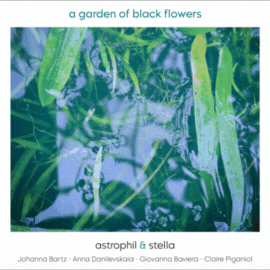BR Klassik veröffentlicht Earth Symphony, eine Chorsinfonie des amerikanischen Komponisten Jake Runestad und des Librettisten Todd Boss. Es ist ein fünfteiliger, vom Chor vorgetragener Monolog der postanthropozänen Mutter Erde. Der Komponist sagt: « Das Werk beschreibt die Hoffnung der Erde auf die Menschheit, ihre Entdeckung ihrer Macht, ihren Untergang durch sie, ihre Klage über ihren Verlust und ihre Wiederherstellung. Durch die Anthropomorphisierung der Erde selbst ermöglicht Earth Symphony den Zugang zu unserer eigenen ökologischen Scham, Schuld, Verantwortung, unserem Potenzial und unserer Erlösung, und das alles aus einem weitwinkligen, zeitlich gestreckten Blickwinkel, wodurch unsere unmittelbar drängendsten Umweltfragen auf eine völlig neue Art und Weise gestellt werden. »
Die musikalische Selbstzüchtigung kommt mitunter recht pompös daher, setzt aber auch Raum für Ruhe und Kontemplation frei.
Das Thema ist selbstverständlich wichtig, der Standpunkt originell, aber die Musik ist vorhersehbar, anbiedernd und setzt für meinen Geschmack die Vision zu pathetisch um. Aber es ist ein schönes, effektvolles Stück Musik, das zugänglich ist und, wenn einem danach ist, mit Andacht gehört werden kann.
Die Aufführung ist hervorragend, mit guter Orchesterleistung und grandiosem Chor. Die Aufnahme konnte freilich etwas konturierter und präziser sein. In der Aufnahme von Reference Recordings ist das Klangbild etwas besser.
BR Klassik is releasing Earth Symphony, a choral symphony by American composer Jake Runestad and librettist Todd Boss. It is a five-part monologue of the post-anthropocene Mother Earth performed by the choir. The composer says: « The work imagines Earth’s hope for humanity, her discovery of its power, her ruination at its hands, her lament at its loss, and her recovery. By anthropomorphizing Earth herself, Earth Symphony enables entry into our own ecological shame, guilt, responsibility, potential, and redemption, all from a wide-angled, time-telescoped lens, thereby asking our most immediately pressing environmental questions in an entirely new way. »
The musical self-chastisement is sometimes quite pompous, but also frees up space for calm and contemplation.
The theme is of course important, the point of view original, but the music is predictable, ingratiating and, for my taste, translates the vision too pathetically. But it is a beautiful, effective piece of music that is accessible and, if you feel like it, can be listened to with devotion.
The performance is excellent, with a good orchestral performance and a magnificent choir. The recording could, of course, be a little more contoured and precise. In the Reference Recordings recording, the sound is somewhat better.























